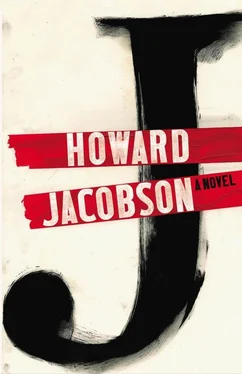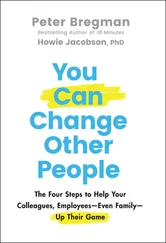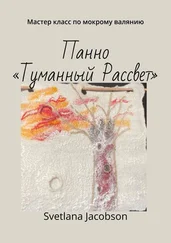This seemed so plausible to the detective that he began to question whether WHAT HAPPENED had in the end claimed any victims at all. Had it remained an undescribed crime all these years because it was an unsolved crime, and had it been unsolved because it was uncommitted? That made a great deal of sense to him. It explained why the world was not the happier place it should have been, and no doubt would have been, had what was meant to happen happened.
In the early days of Gutkind’s courtship his wife-to-be had sent him a graphic letter, imprinted with her lipstick kisses, describing her desires. ‘Read and burn’, she wrote at the bottom.
Now that he understood these essays of his great-grandfather’s as personal missives to a woman he’d loved, he imagined him advising the same precaution. Read and burn.
But this didn’t take from the truth of Clarence Worthing’s analysis. If anything — since it was designed to win assent even from those it might have hurt, since it was intended to prepare, alert and warn, not rabble-rouse — it made the analysis more compelling. The empathetic Gutkind did figuratively as he was told. He read and burned.
ii
Tonight, he spread out a few more pages of the silver-tongued Clarence Worthing on the kitchen table, blowing on them reverently, a paragraph at a time, to keep them free of dust. How he admired the undeviating strength of his resolution, not compromised by passion but stiffened by it. How wonderful it must have been to know where the wrongness at the heart of life was to be located and what it looked like. Here were no abstractions; here was flesh and blood. His great-grandfather wrote as though the enemy were in the other room, perhaps falsely playing with his children as he wrote, perhaps seducing his wife as he had once been seduced himself. Gutkind felt that he could touch them. Put his arms around them, submit his cheek to their false kisses. He closed his eyes and believed that he could smell them. It was a kind of love. A hatred born of pure fascination. His noble-hearted ancestor had been their friend. He had allowed them into his heart. He had been betrayed by them. Gutkind felt his own heart swell. He almost swooned with this love which was indistinguishable from hate. He closed his eyes and made a perfect pink circle of his lips. Womanly, he felt. Kiss me!
But when he opened his eyes again there was no one there. Only Luther, rolling in the white dust. He felt as though that very dust obscured his vision, fell like a veil over his face, through which he could make out nothing distinct, no person or group of persons, just his own causeless dissatisfaction.
But he needed features and so he conjured them, not from the family journals but from his own immediate experience of what the features of aloof, cold-blooded superiority looked like. Those features belonged to Kevern ‘Coco’ Cohen.
i
AILINN DROVE ADVENTUROUSLY but sweetly, ignoring the routine rage of other drivers. They honked her if she didn’t pull over to let them pass, and they honked her when she did; she was too fast for some and too slow for others; she lingered too long at traffic lights or she set off too early for those running the lights in opposing directions. A cyclist hammered on the roof of the car, then seeing she was a woman blew her an enraged kiss.
‘I’d have turned back by now,’ Kevern admitted. ‘I’d have killed or been killed.’
‘You get used to this as a woman,’ Ailinn said.
‘You’re not turning this into a gender issue?’
‘I don’t have to. How many women have wound down their windows to scream at me? How many women have shown me the finger?’
‘I haven’t been counting.’
‘You don’t need to count. Would that cyclist have blown a kiss at you?’
‘All right, I accept what you are saying. But he was young. Any crisis in society manifests itself in the behaviour of young men. So let’s go home.’
She wouldn’t hear of it. Home was no better, remember. At home men weren’t just showing women the finger, they were killing them, and Kevern, or had he forgotten, was suspected of killing a woman himself.
‘And a man,’ he reminded her. ‘Indeed a couple of men. Don’t minimise my offence.’
‘I don’t. But your behaviour doesn’t constitute a crisis.’
Kevern tightened his seat belt. ‘You’ll tell me it’s a tautology,’ he said, ‘but the behaviour of men is the proof we’re in crisis.’
‘That’s a tautology,’ she said, finally getting on to the motorway.
She drove at her usual speed, confidently, with a narrowed concentration as though driving through a tunnel. Kevern spoke not one word. After about an hour and a half, as much from a charitable impulse as anything else, she left the motorway again and followed the signs to the small cathedral city of Ashbrittle, at one time home to more ecclesiastical dignitaries than any other town in the country, and for that reason a magnet for Christian tourists. But that was before WHAT HAPPENED, IF IT HAPPENED happened. Subsequently, though the church insisted it had not been specifically instrumental in those events, it had allowed its head to drop. Too much saying sorry, Kevern thought, as he realised where she’d driven them.
‘This do?’ she asked.
Kevern wound down his window then wound it up again. ‘You can smell the disuse,’ he said.
‘Shall we drive straight out again?’
‘No, let’s stay. I need to rest my eyes.’
‘You haven’t been driving.’
‘That’s what you think.’
They found a motherly bed and breakfast a mile or two outside the town, away from the smell of disuse, and went immediately to bed. Pencil sketches of details of gravestones, lychgates and stoups, arches and columns seen from unexpected angles, hung above their bed. ‘Soft clerical porn,’ Kevern called it. ‘The kitsch to which religion, when no one any longer believes in it, is reduced.’
Ailinn thought he was making too much of it. They were just pictures. Something had to go on the walls. And how would he have felt had they shown the Saviour bleeding on the cross. He said that would have depended on who’d painted it.
‘Let’s have a break from judgement,’ Ailinn suggested. At least on their first night away. ‘We’re supposed to be on holiday. Let’s just enjoy the relief of not being in Port Reuben. And not being looked at every minute of every day.’
He agreed. ‘Or interrogated.’
‘Well that’s your own fault for kissing married women.’
‘You sound like Detective Inspector Gutkind.’
‘Did he ask about me?’
‘No. Should he?’
‘I suppose not. But you’d think I’d be material to his assessment of your character, or at least your circumstances.’
‘He was more interested in assessing my furniture.’
She laughed a small laugh then remembered something. ‘I was questioned by the police once. Not since I’ve been with you. Before I left home. I thought they were more interested in my belongings too.’
‘What were you questioned about?’
‘That was never entirely clear. A burglary, I think. Not for kissing someone in a car park, that I can say. But mainly they wanted the chance to get a look at where I lived. They wondered if I’d held on to any family photographs or letters from before I was adopted. I told them I didn’t have any family photographs or letters from before I was adopted for the reason that I had no family. And besides, I knew the law. They said everyone broke the law a bit. I told them I didn’t. I told them that if they wanted to know more about me they should try the children’s home in Mernoc. And then be so kind as to let me know what they’d found out.’
Читать дальше












